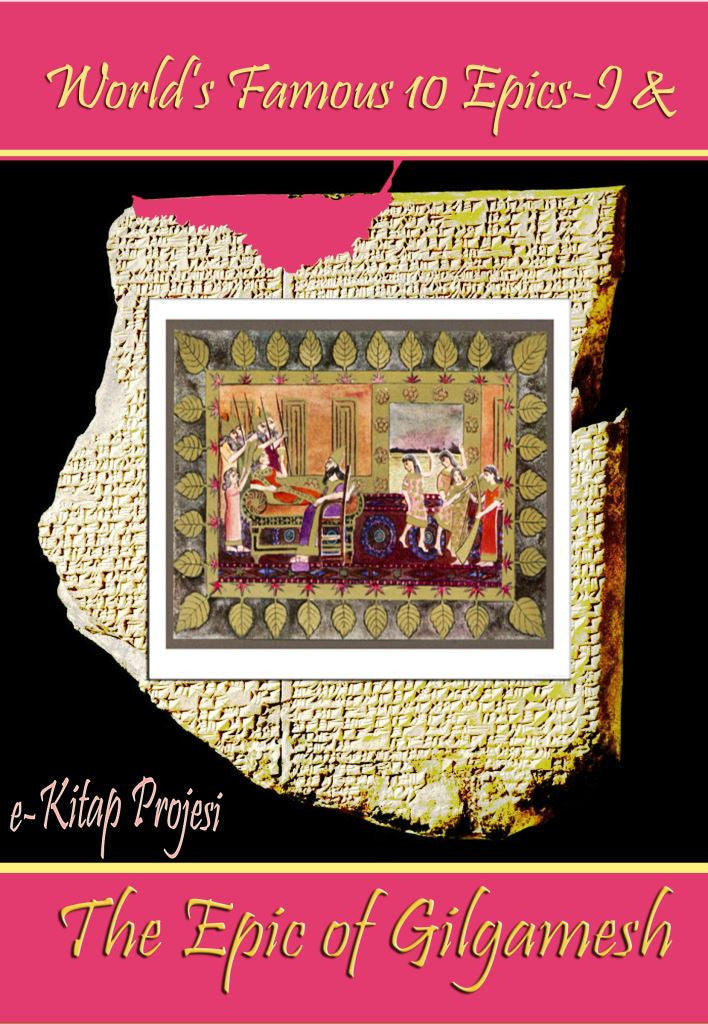World’s Famous 10 Epics-I: The Epic of Gilgamesh
9.99 TL
"The Epic of Gilgamesh, an epic poem from Mesopotamia, is amongst the earliest surviving works of literature. The literary history of Gilgamesh begins with five independent Sumerian poems about 'Bilgamesh' (Sumerian for Gilgamesh), king of Uruk. Four of these were used as source material for a combined epic in Akkadian. This first, "Old Babylonian" version of the epic dates to the 18th century BC and is titled Shūtur eli sharrī ("Surpassing All Other Kings"). Only a few fragments of it survived. The later, Standard Babylonian version dates from the 13th to the tenth centuries BC and bears the title Sha naqba īmuru ("He who Saw the Deep"). Fragments of approximately two thirds of this longer, twelve-tablet version have been recovered. Some of the best copies were discovered in the library ruins of the 7th-century BC Assyrian king Ashurbanipal.
 |
|
 |
 |
The story centers on a friendship between Gilgamesh and Enkidu. Enkidu is a wild man created by the gods as Gilgamesh's equal to distract him from oppressing the people of Uruk. Together, they journey to the Cedar Mountain to defeat Humbaba, its monstrous guardian. Later they kill the Bull of Heaven, which the goddess Ishtar sends to punish Gilgamesh for spurning her advances. As a punishment for these actions, the gods sentence Enkidu to death.
The later half of the epic focuses on Gilgamesh's distress at Enkidu's death, and his quest for immortality. In order to learn the secret of eternal life, Gilgamesh undertakes a long and perilous journey. He learns that "The life that you are seeking you will never find. When the gods created man they allotted to him death, but life they retained in their own keeping." This quote was originally attributed to Siduri in the Old Babylonian version of the epic, and then attributed to the immortal flood hero Utnapishtim in the Akkadian version of the epic. Nevertheless, Gilgamesh's fame lived on after his death, because of his great building projects, and his account of what Utnapishtim told him happened during the flood.








Bu ürünü Arkadaşlarınla Paylaş: